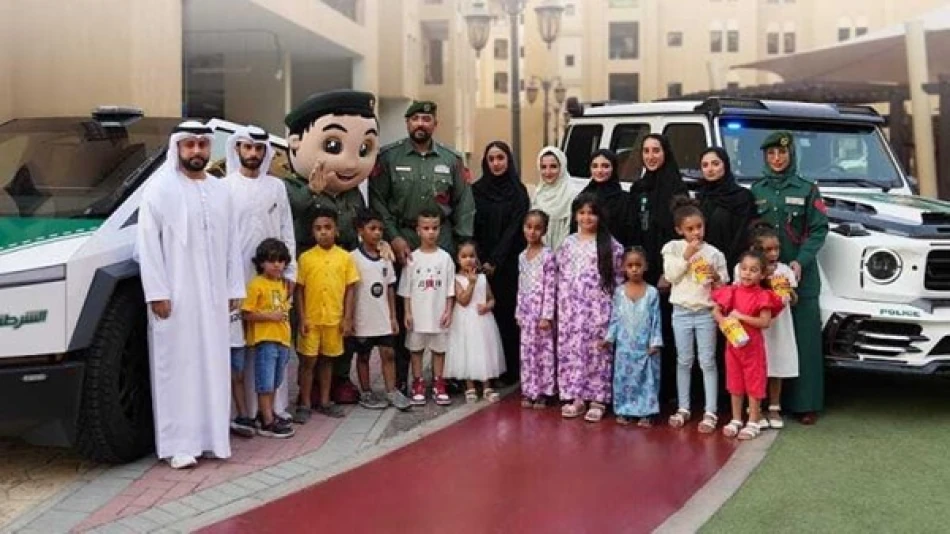
Dubai Housing Authority and Dubai Police Launch 'Back to School' Initiative
Dubai Police and Housing Foundation Launch Community-First Back-to-School Initiative
The Mohammed bin Rashid Housing Establishment and Dubai Police have unveiled a joint "Back to School" initiative in Dubai's Muhaisnah district, marking a strategic shift toward community-centered public services that blend security awareness with educational support. The program reflects Dubai's broader vision of integrating government agencies to deliver holistic citizen services while strengthening police-community relations through positive engagement.
Interactive Security Education Takes Center Stage
The initiative featured Dubai Police's popular mascot characters "Mansour" the policeman and "Amna" the policewoman, alongside a special display of Dubai Police's distinctive patrol vehicles. This approach transforms traditional security awareness from formal presentations into interactive experiences that resonate with children and families.
Dubai Police has consistently pioneered community policing initiatives across the Middle East, with their mascot program becoming a model for other regional forces. The strategy addresses a critical gap in security education—making safety concepts accessible and memorable for young audiences while building trust between law enforcement and residents.
Beyond Traditional Policing Models
This collaboration represents a departure from conventional policing approaches seen in many global cities. While Western police departments often struggle with community relations, Dubai's integration of entertainment, education, and practical support creates multiple touchpoints for positive citizen engagement. The model shares similarities with Singapore's community policing initiatives, where government agencies coordinate to address social needs holistically.
Strategic Community Investment
The distribution of comprehensive school supplies signals more than charitable giving—it represents targeted social investment. By addressing immediate educational needs in Muhaisnah, a middle-income residential area, both organizations demonstrate understanding that community stability requires practical support alongside security measures.
The timing coincides with Dubai's "Year of the Community" objectives, positioning this initiative within a broader government strategy to strengthen social cohesion. This approach reflects lessons learned from other Gulf states, where community engagement programs have proven more effective than top-down governance models in building citizen satisfaction and participation.
Institutional Alignment and Future Implications
The Housing Establishment's involvement extends its mandate beyond construction and maintenance into comprehensive community development. This evolution mirrors successful public housing models in countries like Denmark and Austria, where housing authorities function as community anchor institutions rather than mere property managers.
The initiative embodies the organization's "People First" and "Solidarity" values, suggesting a systematic approach to service delivery that could expand to other districts and government partnerships. For Dubai's leadership, such programs offer measurable community impact while reinforcing the emirate's reputation for innovative governance.
Replicable Framework for Regional Governments
This model provides a template for other Middle Eastern cities grappling with rapid urbanization and diverse populations. By combining security education, educational support, and community celebration, the initiative addresses multiple social needs efficiently while building positive government-citizen relationships that strengthen long-term stability and satisfaction.
Most Viewed News

 Layla Al Mansoori
Layla Al Mansoori






